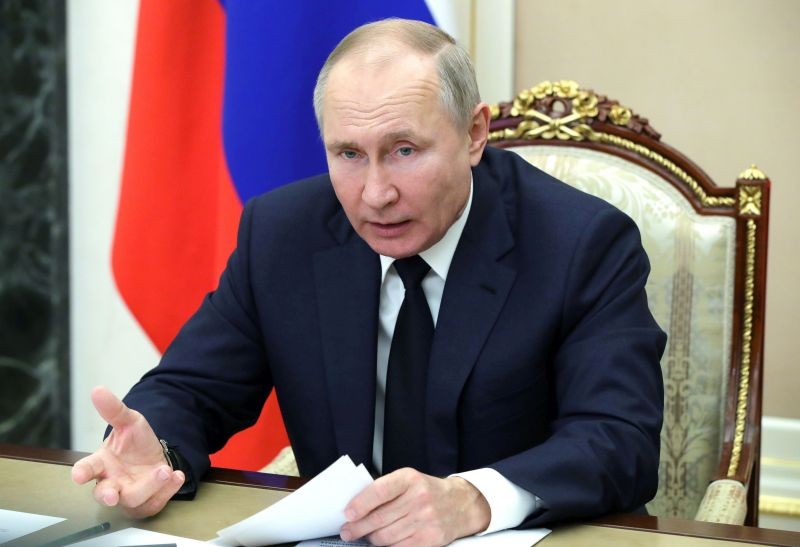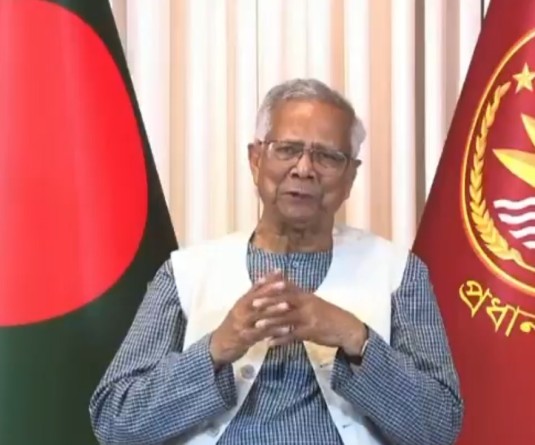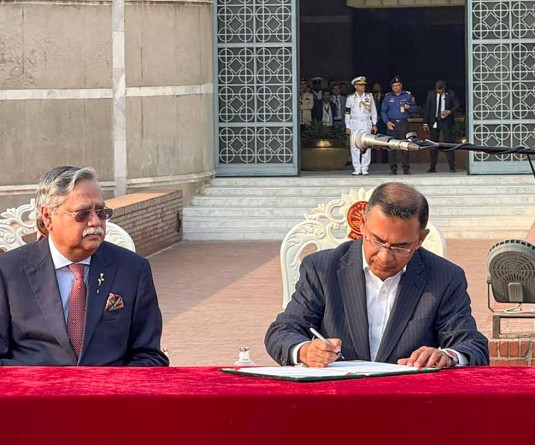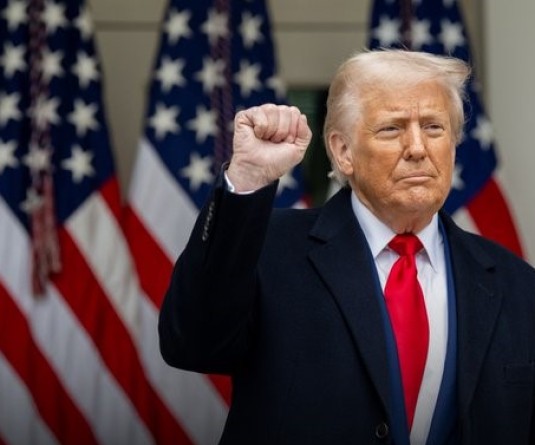Russian President Vladimir Putin leads a meeting via video conference in Moscow, Russia, Monday, Feb. 1, 2021 AP/PTI Photo

Washington, February 3 (PTI): The US on Wednesday extended by five years the last remaining nuclear arms pact with Russia on limiting their stockpiles of atomic weapons, saying the move is the beginning of the efforts of the Biden administration to address 21st-century security challenges,
The New Start treaty, signed in 2010, limits the number of long-range nuclear warheads that each side can possess.
One day before the treaty was set to expire, Secretary of State Antony Blinken said the United States was extending it.
Today, the United States took the first step toward making good on that pledge when it extended the New START Treaty with the Russian Federation for five years, Blinken said in a statement.
President Biden has made clear that the New START Treaty extension is only the beginning of our efforts to address 21st century security challenges, he said.
Russian President Vladimir Putin signed off on legislation extending the accord on Friday.
It is the last major pact of its kind between Russia and the US after Washington pulled out of a separate nuclear arms control agreement with Russia, the Intermediate-Range Nuclear Forces Treaty (INF), under the Trump administration in 2019.
The US will use the time provided by a five-year extension of the New START Treaty to pursue with the Russian Federation, in consultation with Congress and US allies and partners, arms control that addresses all of its nuclear weapons, Blinken added.
"The Biden administration will also pursue arms control to reduce the dangers from China's modern and growing nuclear arsenal. The United States is committed to effective arms control that enhances stability, transparency and predictability while reducing the risks of costly, dangerous arms races," he asserted.
At the same time, the Biden administration remains clear-eyed about the challenges that Russia poses to the US and the world, Blinken said.
Just as we engage the Russian Federation in ways that advance American interests, like seeking a five-year extension of New START and broader discussions to reduce the likelihood of crisis and conflict, we remain clear-eyed about the challenges that Russia poses to the United States and the world, Blinken said.
Even as we work with Russia to advance US interests, so too will we work to hold Russia to account for adversarial actions as well as its human rights abuses, in close coordination with our allies and partners, he said.
The treaty limits each side to no more than 700 deployed intercontinental ballistic missiles (ICBMs), submarine-launched ballistic missiles (SLBMs) and heavy bombers; no more than 1,550 warheads on deployed ICBMs, deployed SLBMs and heavy bombers for nuclear armaments; and a total of 800 deployed and non-deployed ICBM launchers, SLBM launchers, and heavy bombers, CNN said.
According to the top American diplomat, extending the New START Treaty ensures that the US has verifiable limits on Russian ICBMs, SLBMs, and heavy bombers until February 5, 2026.
The New START Treaty's verification regime enables the US to monitor Russian compliance with the treaty and provides it with greater insight into Russia's nuclear posture, including through data exchanges and on-site inspections that allow US inspectors to have eyes on Russian nuclear forces and facilities.
The United States has assessed the Russian Federation to be in compliance with its New START Treaty obligations every year since the treaty entered into force in 2011.
Especially during times of tension, verifiable limits on Russia's intercontinental-range nuclear weapons are vitally important. Extending the New START Treaty makes the United States, its allies and partners, and the world safer. An unconstrained nuclear competition would endanger us all, Blinken said.






